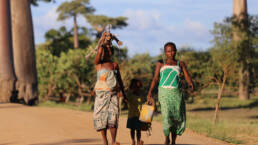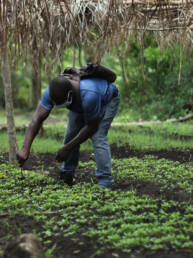Central to the concept of inclusive business is the assumption that participation in pro-poor markets spurs local development that supports the bottom of the pyramid (BOP) producers and consumers. Small scale farmers at the BOP struggle to compete with large scale farmers and one reason for the lack of successful business launches in the BOP is that businesses see low-income markets, compared with markets further up the economic pyramid, as impoverished.
The emergence of the 4 billion people who make up the Tier 4 market is a great opportunity for MNCs. It also represents a chance for business, government, and civil society to join in a common cause. Given that most multinational corporations such as Coca-Cola and Nestle have bases in the Global South and source most of their raw materials from these regions, they have looked at ways in which the communities where they are located benefit from their operations as a means of filling the gap between the BOP and the top tier. To fill perceived gaps in low-income market environments, they transfer skills, competencies, and resources that have proven valuable in higher-income contexts.
However, there are limitations to BOP projects in the Global South due to the elevated levels of poverty. Most BOP projects usually address social issues while tending to neglect environmental sustainability. To deal with this the different stakeholders need to formulate inclusive growth strategies that will address socioeconomic and environmental issues equally.

Inclusive Growth Strategies
The limitations of BOP projects mentioned above, amongst others call for greater inclusive growth strategies. Inclusive growth refers to economic growth which results in wider access to sustainable socioeconomic opportunities for most people while protecting the vulnerable, all being done in an environment of fairness, equality and political plurality. This is exactly what is needed by small-scale farmers for them to have a positive contribution to the economy through participation.
For inclusive growth to take root in Africa, long-term investments aimed at boosting agricultural productivity are imperative and warrant renewed priority. Stakeholders need to provide wider access to education and skills for small scale farmers. They need to be empowered to work and produce quality products in a sustainable manner. Education, skills development, capacity building and worker representation in economic planning and decisions are all important.
Three related determinants of the effectiveness of growth in reducing poverty usually cited by analysts are the generation of growth in the agriculture and rural sectors; enhancement of productive capacity, particularly in infrastructure; and management of aid inflows. However, there continues to be issues faced in implementing inclusive growth by most local/national governments as macroeconomic approaches in the Global South are focused on economic growth, and in pursuit of this, there is concern that the effects of this accelerated growth may not benefit the categories of actors who most need it, particularly small-scale farmers.
Pillars for Inclusive Growth
- Improved agricultural productivity
- Enhanced regional integration, especially the integration of smaller and landlocked countries
- Job creation, including improving skills for productivity and competitiveness
- Wider equal access to basic infrastructure and basic social services
- Social protection and inclusion
- Wider access to productive knowledge
Related Posts
June 20, 2022
Small Scale Farming: The Role of NGOs in Multi-stakeholder Partnerships
Partnerships are seen as drivers for more inclusive and sustainable growth as…



